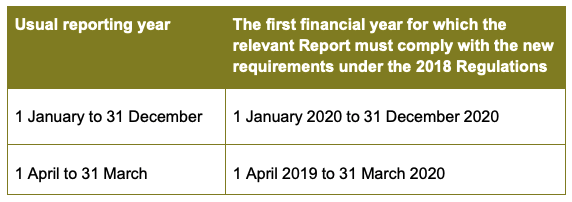If you are based in the UK, SECR, which stands for Streamlined Energy and Carbon Reporting, will be an acronym that you see included in the plethora of sustainability frameworks and terms. With SECR compliance, businesses must annually report and disclose their energy and carbon information.
The UK government describes the overall three-prong goal of SECR as 'raising awareness, reducing bills, and saving carbon.' That's a tidy description. But before any of those objectives can be realised, businesses need to grasp the parameters. With this comes a tricky question: How do you best collect, digest, and make sense of the numbers you need?
Here we'll address some key questions that surround SECR compliance and how to tackle streamlined reporting with efficiency and confidence.
What is SECR?
Formally introduced in April 2019, SECR requires an estimated 11,900 UK companies to disclose their energy and carbon emissions. Improving energy efficiency in business can boost productivity, support growth, improve the security of energy supplies and help decarbonise the economy. It also aligns with the Energy Savings Opportunity Scheme (ESOS). The ESOS calls for an assessment every four years of the energy companies use in buildings, industrial processes, and transport to identify cost-effective energy-saving measures.
A primary goal of SECR is to raise awareness with decision-makers within companies and inform markets and government policies. ''The message we want businesses to hear is that energy is a controllable cost,'' said Claire Perry, MP, Energy and Clean Growth Minister. The phrase the UK government uses to capture the overarching intent of SECR is 'energy efficiency'.
Who needs to report under SECR?
Those required to report include all quoted companies in the UK as well as large Limited Liability Partnerships (LLPs). Large means a company meets two of the following criteria:
- 250 employees or more
- An annual turnover of more than £36m
- An annual balance sheet of over £18m
Part of your organisation may also fall within the scope of SECR if it undertakes public or not for profit activities. So this could apply even if you belong to registered companies or companies/LLPs owned by universities, academies or NHS Trusts. Always be sure to check, though in many cases you could be exempt. Low energy users are exempt as well.
What are the benefits of SECR?
When SECR was first developed, it was estimated that UK businesses could save more than £2 billion per year, through improved energy efficiency in buildings and processes.
''By accounting for carbon emissions, investors and shareholders will be able to see the opportunity and potential savings from cutting down on energy waste and increasing the efficiency of their businesses,'' Perry said as details on SECR were released.
As SECR factors can impact a company's profitability, disclosures also provide greater transparency for investors, and other stakeholders, on business energy efficiency and low carbon readiness.
How often do you need to report on SECR?
SECR reporting should be done annually to align with financial years. Quoted companies have been required to make carbon disclosures in their directors’ reports since 30 Sept 2013 and the new requirements apply to reports starting on or after 1 April 2019.

HM Government, Environmental Reporting Guidelines
How do you file your SECR report?
SECR regulations state that your report needs to be included using the SECR framework in the directors’ report or in an equivalent energy and carbon report for LLPs for financial years beginning on or after 1 April 2019 and filed with Companies House. If SECR is considered to be part of strategic importance to the organisation, it may be included in the strategic report instead with a statement in the directors’ report to indicate and explain the decision. It is also expected that in future years, the prior years’ equivalent figures are also required to be disclosed for comparative purposes.
What should be included in SECR reporting?
Government guidelines specify that SECR information for quoted companies includes:
- Global greenhouse gas (GHG) emissions, including any emissions your company may be responsible for outside the UK
- Energy use and GHG emissions figures from the previous year
- An “intensity metric” or “intensity ratio.” This compares the reporting of your annual emissions in relation to a quantifiable factor associated with the company’s activities.
- Your total global energy use across all energy types
For unquoted companies and large LLPs, the requirements are a bit different:
- UK energy use (as a minimum gas, electricity, and transport including UK offshore area)
- Associated GHGs
- Energy use and GHG emissions figures from the previous year
- At least one emissions intensity ratio
- A narrative that describes your energy efficiency measures
- Details of the methodology your company used
OK, so you’ve got all that under your belt. What next?
Beyond compliance and data collection, SECR reporting requires a unique combination of transparency, thoroughness and clarity. Likewise, the process of putting it all together must serve a larger goal: improve sustainability performance.
Rio is well-positioned to fulfil your SECR reporting needs as it works to link financial, compliance and governance information at the transaction level, and comes with a bunch of built-in reporting and disclosure frameworks that include SECR and ESOS. If you are unsure whether your organisation is ready for SECR, our self-guided consultation tool will provide you with insights into SECR requirements and your organisation’s position - accessible through a free Rio account.

.png?width=2800&height=1400&name=Blog_%20Featured%20Images%20(6).png)









